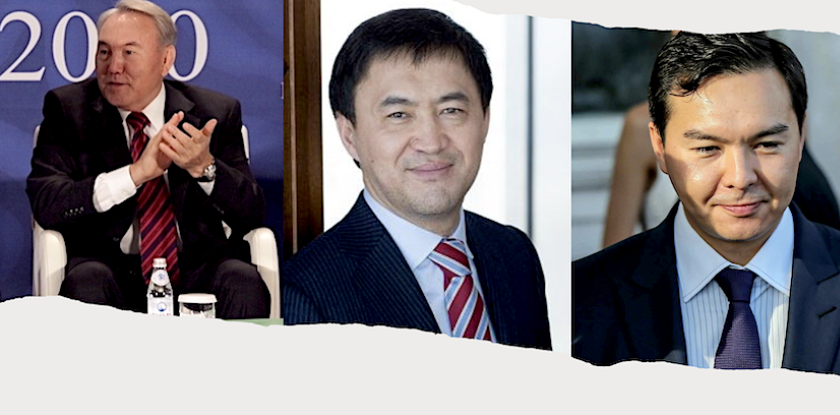The latest session of the Economy Demonopolisation Commission operating under the aegis of the Government of the Republic of Kazakhstan took place on April 5, 2022. The press-release on the event was published on the website of the Kazakh Prime Minister. As far as we are concerned, the document has left us with an ambivalent feeling.
On one hand, Kassym-Jomart Tokayev’s initiative to demonopolise the economy deserves a full and vigorous support on the part of the Kazakh citizens as well as the small and medium-size businesses. For, if implemented successfully, it will prevent the prices and tariffs from rising (if not reduce them).
On the other hand, however, we find the document quite irritating in its political ambivalence, if not cowardice.
For, in relation to this subject, Kazakhstan must solve two very important (yet cardinally different) tasks -
first, to demonopolise the national economy,
second, to nationalise the assets appropriated, stolen, received through abuse of authority by Nursultan Nazarbayev himself and by his relatives and allies. Or, at the very least, to remove the latter from the key industries so that the political demonopolisation can be followed by the economic one.
The industry discussed at the Demonopolisation Commission session of April 5, 2022, just happened to belong to this category.
We see no point in praising the political bravery of Prime Minister Alikhan Smailov (the head of the Commission) and his colleagues as well as Minister of Digital Development, Innovations and Aerospace Industry Bagdat Musin (the spokesperson) who, de-facto, encroached upon the interests of Kayrat Satybaldy, Nurali Aliyev and Nurstultan Nazarbayev still controlling (directly or through the affiliated structures) the communication sector.
We see no point in praising them due to the fact that this was no bravery. It was a desire to do something but in a way that won’t get them in trouble later on.
As a result, the session turned into a political show whose actors seemed to have performed the roles they were expected to but, at the same time, failed to do what they had to – publicly reveal the names of the people who had monopolised the communication sector, to register how and when it happened and who is to be held responsible as well as to suggest what steps should be taken to demonopolise the sector in reality and not just on paper.
In view of this, we laugh at the admissions made in the press-release. For instance, that “Kazakhtelecom JSC has a monopoly at the telecommunication market controlling more than 80% of the fixed-line telephony market and more than 60% of the mobile telephony market”.
Or that “the solid standing at the telecommunication market has allowed Kazakhtelecom JSC to obtain a significant share at the adjacent markets. Kazakhtelecom JSC owns 100% of the numerical tagging market, 78% of the fiscal data operators market, 55% of the data processing centres market, 33% of the pay-TV service market, 74% of all the radio frequencies”.
You will recall that it was the previous KZ governments that included both Prime Minister Alikhan Smailov and a number of the other Commission members that had made Kazakhstelecom JSC the super-monopolist in the industry.
So, had it not been for the January “explosion” of the protest sentiments in the country, the monopolisation process in the telecommunication industry would have continued and, quite possibly, would have resulted in Nursultan Nazarbayev’s clan becoming the majority shareholder of the national economy with the participation interest surpassing 51%.
We are not to comment on the other ideas proposed by Minister of Digital Development, Innovations and Aerospace Industry Bagdat Musin. Due to their technical nature, they may very well be implemented.
On the other hand, we will register here the three ideas that, if implemented, may result in stripping Nursultan Nazarbayev and his clan off their telecommunication assets -
a) the Public Prosecution Office and the Financial Monitoring Agency are to “examine the matter of a possible damage done to the state as a result of the sale of the 24% Ksell JSC shares;
b) “to examine the justifiability of the Transtelecom JSC tariffs regarding the engineering infrastructure for the data processing centres as well as to continue working on excluding Transtelecom’s exclusive right determined as part of the inter-governmental agreement between Kazakhstan and Azerbaijan to build a fibre-optic communication line through the Caspian Sea in view of delaying the implementation of the achieved agreement”;
c) “to examine the sale of the Transtelecom JSC shares to private parties as well as a possible damage done to the state during the alienation process”.
Let us see when and how it is going to be achieved.




